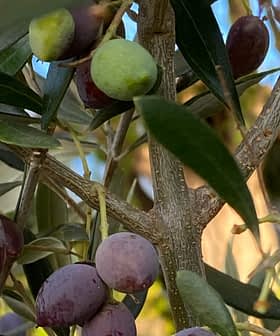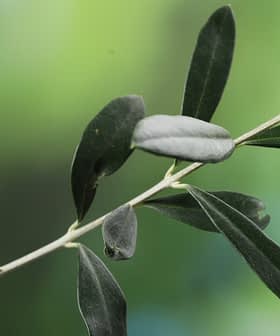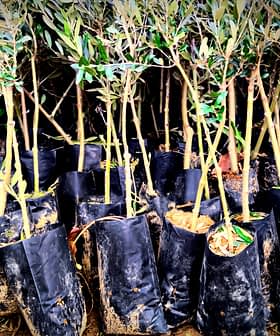Hot Weather Weakens Plant Immune System, Study Finds
Uncertainty exists among scientists worldwide about why plants’ defenses against pathogens fade away under rising temperatures. However, the cure may lie in genetics.
Researchers have found that plants become more susceptible to disease at higher temperatures due to a decrease in basal immunity, but they have developed a genetic solution to restore the plant’s ability to defend against pathogens in hot weather. The study focused on Arabidopsis thaliana, a common weed used in experiments, and found that by bypassing a gene that suppresses the production of salicylic acid hormone in plants at elevated temperatures, the plant’s defense mechanism can be restored.
Scientists have long been trying to understand why plants become more vulnerable to disease when temperatures rise.
While relevant research is ongoing, a group of researchers from universities around the world sought ways to restore the plants’ ability to defend against pathogens in hot weather.
As climate change accelerates, we’re going to be under pressure to learn things in the lab and move them into the field faster. I can’t see how we’re going to do this without more acceptance of genetically modified plants.
“Plants get a lot more infections at warm temperatures because their level of basal immunity is down,” said Sheng-Yang He, a plant biologist at Duke University who led the research team. “So we wanted to know, how do plants feel the heat? And can we actually fix it to make plants heat-resilient?”
The study, published in Nature, focused on Arabidopsis thaliana, an unassuming weed widely known as the mouse-ear cress, considered the ‘lab rat of plants’ by plant biologists. Arabidopsis thaliana thrives on roadsides, open paths and vacant lots and is used in experiments worldwide due to its short life cycle and short and easy-to-modify genome.
See Also:Studying Plant Reactions to Environmental Stressors Key to Sustainable AgricultureThe scientists said the main defense hormone of Arabidopsis thaliana is salicylic acid, which is used by many plants, including major crops, to resist disease. However, the production of salicylic acid can be disrupted when temperatures rise a few degrees.
“Extreme weather conditions associated with climate change affect many aspects of plant and animal life, including the response to infectious diseases,” the researchers wrote. “Production of salicylic acid, a central plant defense hormone, is particularly vulnerable to suppression by short periods of hot weather above the normal plant growth temperature range via an unknown mechanism.”
After years of lab work, the researchers isolated the CBP60g gene, which can withhold the production of the salicylic acid hormone in plants when temperatures rise, neutralizing their defense mechanism. The solution genetically bypassed the gene to restore the plant’s defense at hotter temperatures.
“This was a multi-year and multi-institutional effort,” Christian Danve Castroverde, a biologist at the Wilfrid Laurier University in Canada and co-author of the study, told Olive Oil Times.
“In 2013, [we] discovered that short periods of high temperature dramatically impact the hormone defenses of Arabidopsis plants against infection by a bacterium called Pseudomonas syringae,” he added. “After several more years, we were eventually successful in identifying the molecular basis of how Arabidopsis immunity is suppressed by warm temperature conditions.”
The researchers bypassed the gene in the lab by adding a ‘promoter.’ The short DNA sequence forces the gene to transcribe (copy the DNA sequence into an RNA molecule), restoring Arabidopsis thaliana’s ability to produce the salicylic acid hormone.
“Including the salicylic acid receptor and biosynthetic genes, optimized CBP60g expression was sufficient to broadly restore salicylic acid production, basal immunity and effector-triggered immunity at the elevated growth temperature without significant growth trade-offs,” the researchers wrote.
See Also:Researchers Work to Identify Olive Varieties Best Adapted to Higher TemperaturesThe team has started testing gene modification on food crops such as rapeseed. They also plan to experiment with more crops, including wheat and potatoes. However, Castroverde said a significant amount of field research is required before applying the fix at a large scale.
“Many plants have CBP60g-like genes, and a lot of them have the capacity to make salicylic acid,” he said. “It looks like plants already have a weapon in their arsenal. Our challenge now is just harnessing this power. In terms of agricultural applications, I believe we have to wait until we have successful results in field trials.”
Nevertheless, the specific solution proposed by the research team to restore the plant immune system presupposes that consumers are ready to accept more genetic manipulation of their food.
“As climate change accelerates, we’re going to be under pressure to learn things in the lab and move them into the field faster,” said Marc Nishimura, an expert in plant immunity at Colorado State University, who was not involved in the research. “I can’t see how we’re going to do this without more acceptance of genetically modified plants.”
Another study published by researchers at the Chinese University of Hong Kong in June warned that crop yields could decrease by 20 percent globally by 2050 due to ozone pollution and the effects of climate change
Despite their success in restoring the Arabidopsis thaliana’s defense against heat, the researchers stressed the fact that the gap in understanding how a warming climate influences the effectiveness of the plant immune system is “a key concern for future agricultural productivity, ecosystem preservation and the emergence of new plant disease pandemics.”
However, they added that their results point to crops becoming more resistant in the future.
“We were able to make the whole plant immune system more robust at warm temperatures,” said He, the plant biologist from Duke. “If this is true for crop plants as well, that’s a really big deal because then we have a very powerful weapon.”
Share this article









